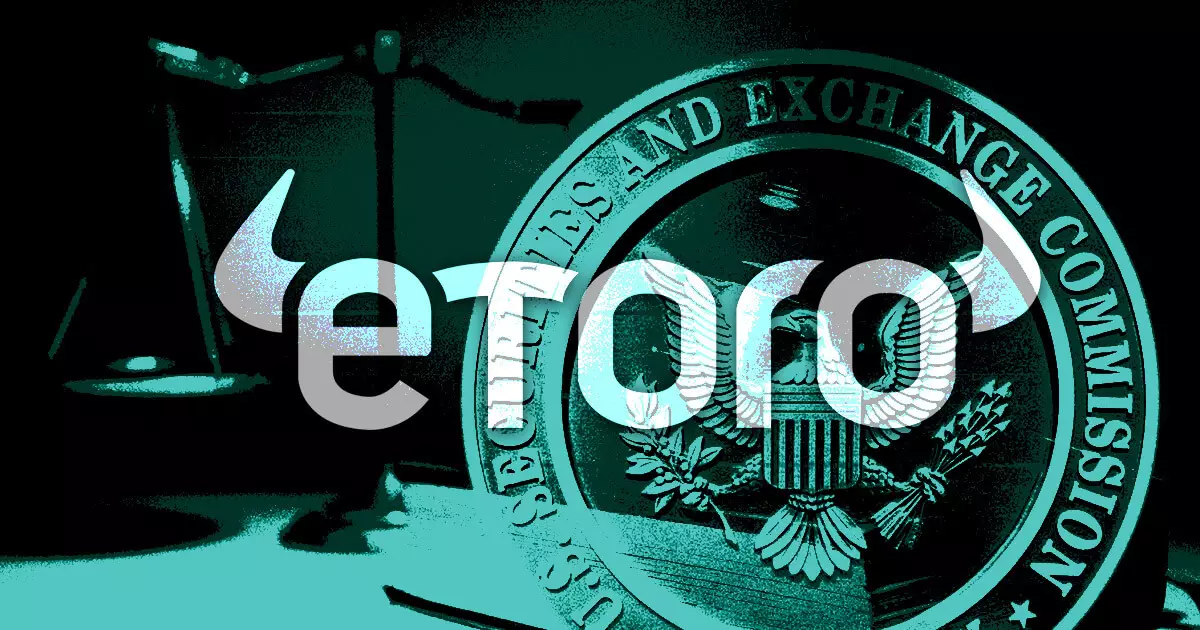In a significant move for the cryptocurrency trading landscape, eToro recently announced that it will cease trading most digital assets on its platform, following a $1.5 million settlement with the US Securities and Exchange Commission (SEC). This decision stems from an investigation that revealed eToro had allowed US customers to trade crypto assets considered securities without adhering to federal registration mandates. While eToro neither admitted nor denied the SEC’s allegations, the settlement marks an attempt to align operations with regulatory expectations, reflecting a broader trend of increasing scrutiny within the cryptocurrency sector.
The SEC’s Broader Crackdown on Crypto Platforms
This settlement is part of a more extensive crackdown by the SEC on various digital asset firms, including notable players like Binance, Kraken, and Coinbase. The SEC has aggressively targeted firms that it believes have skirted around established regulatory frameworks, emphasizing its commitment to enforcing compliance. Notably, other firms, such as Robinhood and the NFT marketplace OpenSea, are also facing potential legal challenges as indicated by the issuance of Wells Notices. This environment highlights the intense pressure crypto platforms are under to conform to regulatory standards, illustrating the SEC’s determination to safeguard investor interests while navigating the complexities of digital asset regulations.
Streamlining eToro’s Offerings
As part of the settlement agreement, eToro is required to liquidate most of its digital assets within a specified timeframe, leaving only a few, such as Bitcoin, Bitcoin Cash, and Ethereum, available for trading. According to Gurbir S. Grewal, Director of Enforcement at the SEC, this decision underscores eToro’s initiative to comply with federal securities laws and represents an opportunity for other crypto intermediaries to follow suit. Simplifying its offerings may initially seem restrictive; however, it could pave the way for a streamlined, compliant platform that aligns with both regulators and investor expectations.
Yoni Assia, eToro’s co-founder and CEO, articulated a vision for growth and adaptation in the wake of the settlement. He expressed optimism about the company’s ability to move forward and innovate within a regulatory framework, citing established guidelines for cryptocurrencies in the UK and Europe. Such a framework allows firms to operate transparently and in alignment with regulatory demands. Assia believes that a similar structure is forthcoming in the US, suggesting that once in place, eToro would seek to reintroduce a broader range of crypto assets to its platform.
For existing eToro users, the implications of this settlement are significant. Customers have until March 11, 2025, to either close their crypto positions or transfer their holdings to the eToro wallet. After this date, any remaining unsupported crypto assets will be liquidated by March 18, 2025. This timeline grants users a crucial window to manage their investments, although it also emphasizes the urgency of adapting to the changing regulatory landscape. The ability to transfer supported coins will provide some leeway, but it signals to users the reality of operational shifts that accompany regulatory changes.
The eToro settlement is a pivotal moment that highlights the increasing intersection of cryptocurrency and regulation. As eToro adjusts its offerings and aligns with regulatory requirements, both the firm and its users must navigate this evolving landscape together, understanding that compliance will play a crucial role in shaping the future of digital asset trading.

